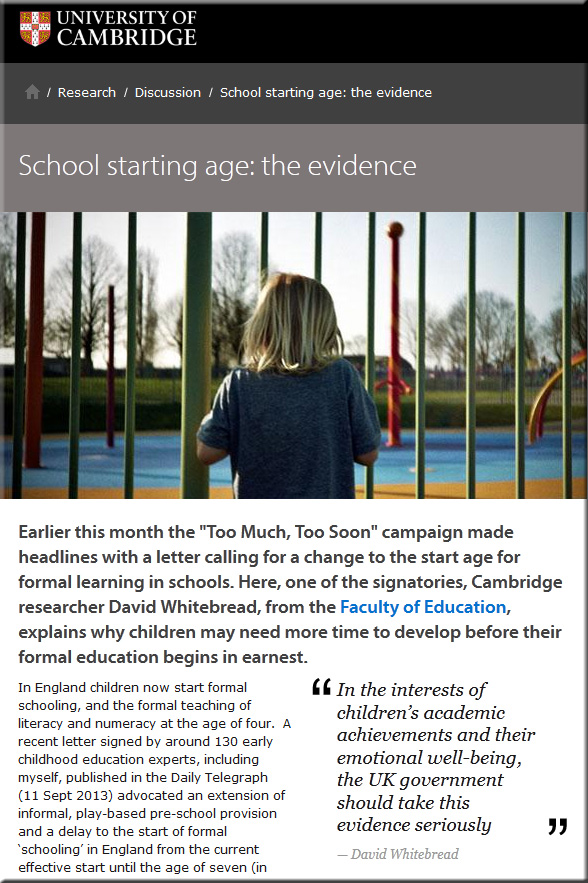From DSC:
With a huge thank you/shout out to Dr. Kate Byerwalter, Professor of Psychology at Grand Rapids Community College, for this resource. Per Dr. Byerwalter (emphasis DSC):
I am a big supporter of play for younger children– the benefits are cognitive as well as social and emotional. But this new push towards early academics and testing is taking away time for play.
…one study (in the linked item above) found that kids who waited to start formal schooling until age 7 (when many cultures consider kids to be more responsible, etc.) had the same reading ability at age 11 as kids who began reading at age 5, and the kids who started later had better attitudes about reading and better text comprehension..
Excerpt (emphasis DSC):
From DSC:
First of all, here in the United States…I can’t help but think that the push for more “standardized testing” — as well as the Common Core being throttled at full-steam ahead — are like run-away trains (here’s but one example); that is, if you wanted to do so, they are very hard to stop. The unanswered question (at least for me) is, “Will they cause an enormous amount of damage when they have finally run their course?”
Secondly, as students get older, I think the word balance comes in to play here.
Balance in assessment. Balance in play. Balance in times to rest (see this important posting from a teacher now teaching in Finland for his thoughts on this topic). Balance in the offerings (arts, music, etc.) as well as STEM-related offerings.
Lastly, this entire posting/topic makes me think of the janitor from my college days at Northwestern. Occasionally, if I was rushing too much to get to my next class, he used to yell to me, “Take it eeeassssyyy young man!”
If we don’t heed these words of wisdom, how will these run-away trains affect students’ learning experiences and their viewpoints on education/learning? Given the pace of change and the shrinking 1/2 lives of information….we need them to at least like learning; as they will have many years of needing to do so ahead of them.
Also see:
- The importance of play
Dr. David Whitebread
University of Cambridge
With Marisol Basilio, Martina Kuvalja and Mohini Verma
A report on the value of children’s play with a series of policy recommendations
April 2012










One more great piece for those who are skeptical of the power of play to shape cognition:
http://www.ted.com/talks/stuart_brown_says_play_is_more_than_fun_it_s_vital.html
I think you are right on about balance, Dan. Thanks for putting a name to what I was feeling about it!
Thanks again Kate for these great resources!